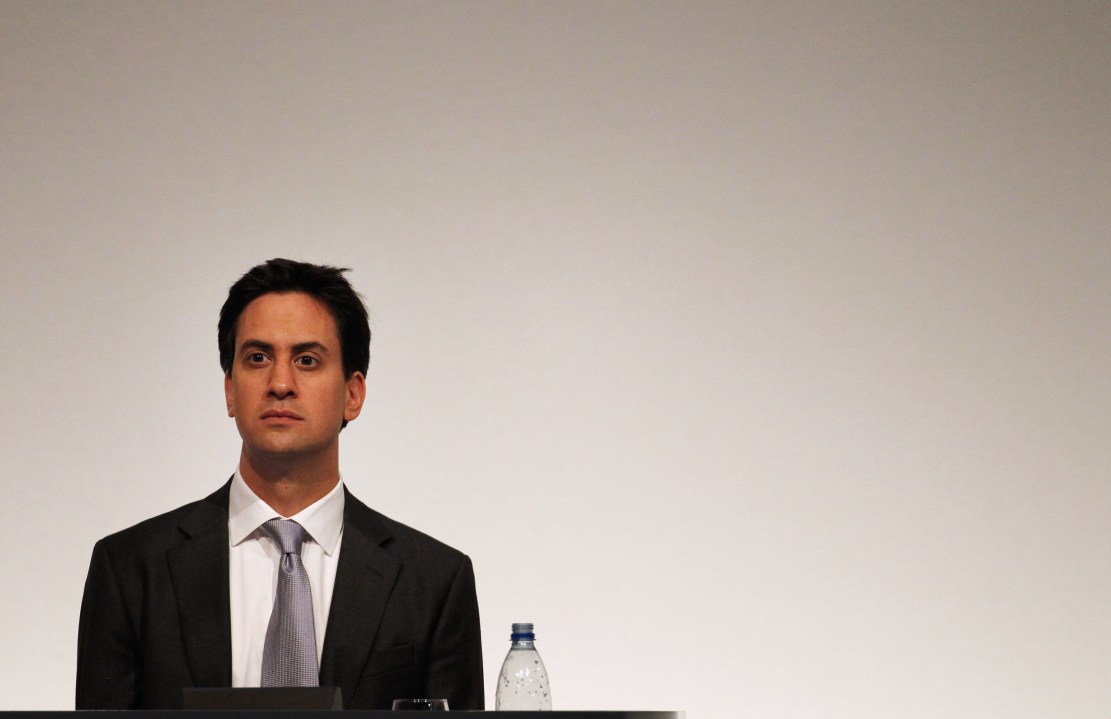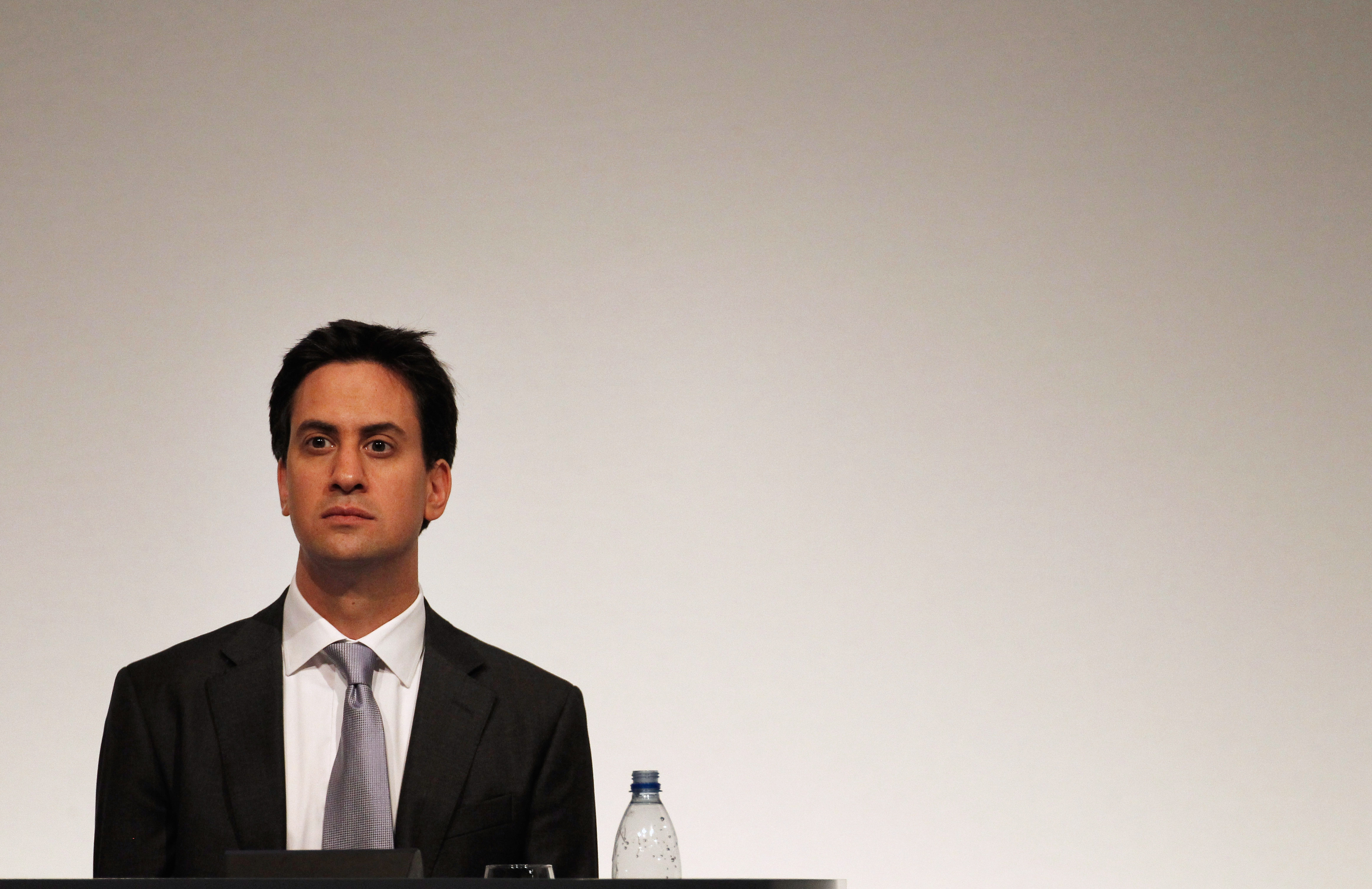Unless one of Ed Miliband’s New Year’s resolutions was to ignore absolutely everything going on around him, I expect the Labour leader will be in a particularly glum mood this morning. And it’s not just that Maurice Glasman article — which has inspired the headline ‘Miliband’s former guru says he has “no strategy”’ on the front of today’s Guardian — either. It’s the, erm, questionable tweets from one of Miliband’s shadow ministerial team. It’s the LabourList poll that finds scant support, and much disapproval, for his leadership. It’s that John Rentoul column suggesting Yvette Cooper for the throne. It’s the Tory minister who said to Iain Martin that ‘Keeping Ed Miliband in his job must be one of our biggest priorities this year.’ It’s the establishment, by Guido, of a mocking ‘Don’t Unseat Ed Miliband Association’. In these and a hundred other ways, the tidal swell of disgruntlement with Miliband, already high before Christmas, is turning into a flood.
To my mind, all this is the culmination of problems that have existed since the very moment that Miliband became Labour leader. Yes, he has actually achieved more than his most vicious detractors would admit: steering Labour away from the outright fiscal insanity that others urged upon them; hitting upon the very fertile and important territory of the ‘squeezed middle’; and putting a stop to shadow cabinet elections, for instance. But Miliband has also failed to convince both the public and his own MPs that he is a natural born leader. And, as a result, he has always had to contend with the idea that Labour’s successes are coming despite him, rather than because of him. Which sets him up perfectly to take all the blame for the failures.
Miliband’s biggest problem, in this regard, is an absence of policy. He is a man who is comfortable speaking in abstracts — the same ‘squeezed middle’, ‘providers versus predators’, etc. — rather than in specifics. And while his policy of having (almost) no policies until after a policy review may be nicely contemplative, it has also left a vacuum at a time when voters expect something more solid, even from Oppositions. As I have written before, there are two reasons why Miliband needs to get specific, and quick. First, the fiscal concerns that preside over our politics are ones that, by their very nature, demand an unusual degree of detail. Second, the Labour leader has others behind him — including his own brother — who have plenty of ideas for what Labour should be and how its manifesto should read. Yet urgency, on his part, is there none.
In fairness, there are, at last, some signs of life emerging from that dusty tomb of a policy review. But I wonder whether it’s too late for Miliband now. By tarrying, the Labour leader has allowed his opponents to define him. And, in the process, he has lost any sense of a fixed argument for his party. Even if the policies flow forth, they may not overcome the bigger inconsistencies that now exist.
Sure, perhaps we shouldn’t write off the Labour leader just yet. Anyone who has observed politics ever, let alone for the last few years, will know that predictability is not an abundant commodity. Things can change in an instant. But if they don’t change soon then Ed Miliband can expect many more mornings like this. That is, of course, unless his party decides to put him out of his misery in the meantime.







Comments